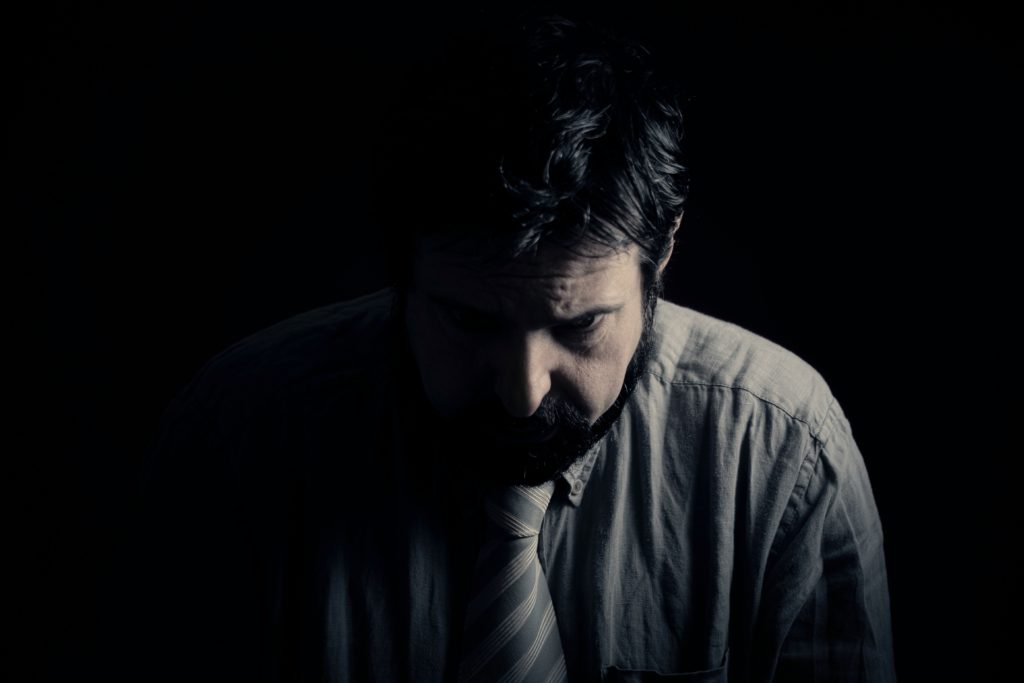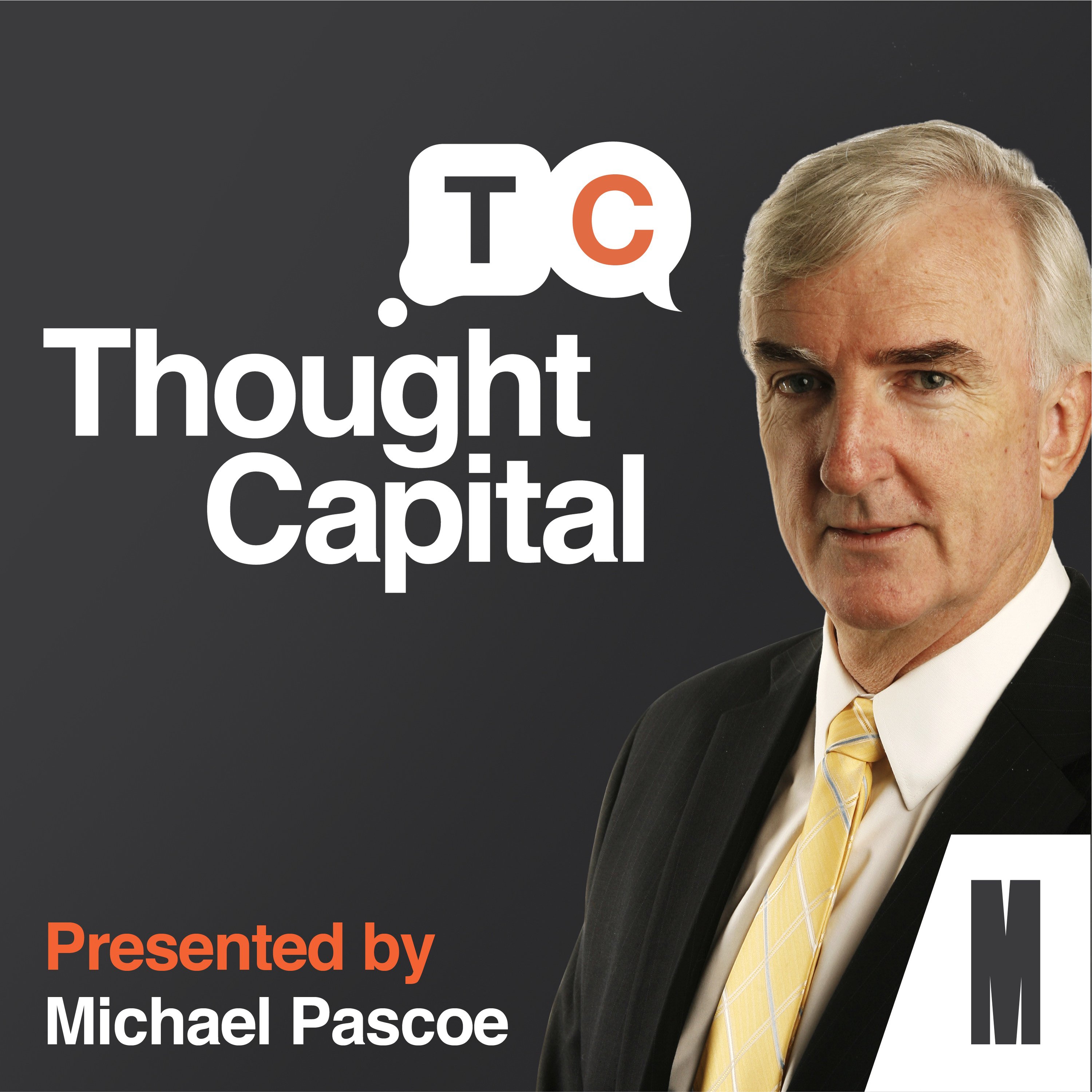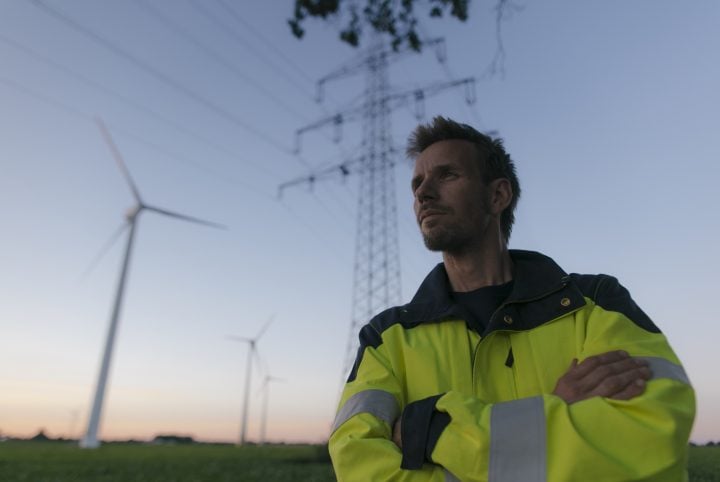Michael Pascoe: Welcome to Thought Capital, the podcast that delves into the wealth of ideas created by the experts at Monash Business School, in Melbourne, Australia.
For the 2020 word of the year, I’m nominating unprecedented. Just the use of unprecedented has been, well, unprecedented, an adjective reduced to a cliché, yet still the most accurate word for so many aspects of the year that COVID-19 erupted and changed the world in ways few imagined.
So, where are we in these unprecedented times? What’s happening in Australia and in the world, with the economy, our cities, our mental health, how we trade, travel and learn? In this special six part season of Thought Capital with Monash Business School experts, we’re looking to connect the dots of COVID-19’s impact, to see what this new normal might mean for all of us, and understand the path forward in rebuilding society.
Michael Pascoe: At first, it was the fear of COVID-19 itself; how infectious, how lethal it was, the worry for the health of family and friends. I left most of my lymphocytes on the floor of the Royal North Shore Hospital’s cancer centre last year; the medical advice was that it was probably best if I didn’t cop a dose of the virus.
Michael Pascoe: Then came the financial worry, the stress of perhaps losing your job or your business, how to pay the mortgage or the rent. In the strain of lockdown, coping with home schooling while working from home, not seeing family interstate or abroad for many, many months. The pandemic isn’t over, nor are our worries.
It’s been a year that we want to put behind us, but it will leave its mark on many lives for years to come. That’s what we’re diving into today: Australians’ state of mind, and the cost to society of our mental ill-health.
Michael Pascoe: In 2018, the Productivity Commission launched an inquiry into mental health, its impact on the community and economy, and what could be done about it. The draft report last year painted a sobering picture: one in five Australians in any year experiencing mental ill-health; the annual cost of treatment, suicide, and under-performance of the mentally ill as much as $180 billion; major and broad long-term changes required to improve prevention, treatment and support. And that was before all the extra emotional, social and financial strain of the pandemic.
Michael Pascoe: The residing commissioner for that inquiry, Dr. Stephen King, also was Monash Business School Adjunct Professor and former Dean of the Faculty of Business and Economics. Dr. King, welcome.
Stephen King: Thank you, Michael.
Michael Pascoe: Did your findings come as a shock to you?
Stephen King: The extent of both mental illness and the failings of the system… and I want to make clear, it’s not just the health system, it is the broader system, which includes community, sports, housing, education and so on. The failures going across the system to deal with mental health were quite shocking.
Michael Pascoe: And we’ve hidden it, by and large?
Stephen King: Almost any adjectives I come up with are going to understate it. There is an incredible stigma problem with mental illness in Australia. People will hide mental illness. They’ll hide it for social reasons. They fear discrimination. They fear, not just social, but also economic discrimination, with good reason.
Stephen King: As we mentioned in our draft report, if you go for, say, income protection insurance and you mention that you’ve seen a psychologist at any stage in your life… you could be 60 and you saw the psychologist when you were 20… you’ll, in general, be refused that insurance.
Stephen King: If you go for travel insurance, again, they’re asking questions which relate to issues that can no longer be relevant for your health, but are normal in considering mental health. They’re the sort of things we would not put up with in the physical health system, but are treated as normal for people with mental illness.
Michael Pascoe: $180 billion a year is a headline grabbing number. How did you arrive at it?
Stephen King: So I want to stress that those numbers that you mentioned are conservative. It comes from a range of areas. So those numbers include both direct economic costs, around about $50 billion per year of those. That includes the cost of healthcare and other services for people with mental illness. That includes the reduction in ability to participate in the workforce. And it includes the cost of otherwise un-costed care, often by family and friends, and that comes to $50 billion, which is a large number.
Stephen King: But that is swamped by the loss in quality of life and the premature death of people with mental illness. There is a life expectancy gap associated with people, particularly those with severe and acute mental illness, where if you compare those people with people with similar physical conditions, the people with mental illness will die more than a decade earlier, on average, than the people who don’t have mental illness.
Stephen King: So around about $130 billion of that $180 billion is a reduction in quality of life, and we’ve used the standard health approach for that, looking at quality-adjusted life years.
Michael Pascoe: You’ve made several recommendations. What do you think are the most important, if you can prioritise them?
Stephen King: Our final report, we have 21 recommendations that incorporate over a 100 actions. So we’ve been very strong to set out a roadmap for government, and that roadmap will be evidence-based. It will include prioritisation of actions. The prioritisation will be based on what things can the government do to most impact on quality of life, what give the highest benefits relative to the costs, what do we need to do first. We have tried to say, where is the biggest bang for the buck in the recommendations? Where can we most gain from the system?
Stephen King: So what are our most important recommendations? They do touch on all aspects of the mental health system. So we’ve got recommendations looking at early intervention and prevention. That’s early in life, and you’ll notice that the government in the recent budget put funding aside for help for new parents.
Stephen King: So one of the areas that’s a clear, if I can say winner, from the perspective of mental health, is actually helping new parents, helping them to adjust to the fact that they have a baby in the family, but there can be mental health problems for the parents associated with having a baby, and that early dysfunctional family environment, trauma at that very early stage, can lead to lifelong issues. So that’s one area where the government’s already put aside some funding.
Stephen King: If you look at education, there’s very strong evidence that focusing on social and emotional wellbeing of school children, going right through into university, is incredibly important. We know that, unlike other acute illness, mental illness comes on early in life. One of the things to note is that of that 50 per cent of Australian adults who will at some stage be liable, three quarters of that group will first experience symptoms of mental illness before the age of 25. That is completely different to physical chronic illness, which tends to impact in old age. We’re talking about an illness that comes early in life, during often educational years, and can impact the individual’s ability to participate in education, and that has lifelong consequences for them, their families, and for the broader community.
Stephen King: With regards to the healthcare services, there are huge gaps in our healthcare services. We focus on two. We call it the low intensity gap. There’s actually not a lot of services for people with, say, mild anxiety and mild depression. Often their first gateway is to go to a GP. Significant numbers of those people leave the GP clinic with a script, for example, for an antidepressant, and there is some evidence that we should be concerned about our level of prescribing of mental health medications in Australia; we are out of line with other developed countries.
Stephen King: Sometimes they’ll have a referral. Less often than a script, by the way, they’ll have a referral for some face-to-face therapy. Face-to-face therapy works really, really well, but there are a whole range of other options, including community options, including online options, including things like group therapy, that just never get referred to.
Stephen King: What’s our most important recommendation? I think we’ve got 21 really, really important recommendations right across the system.
Michael Pascoe: You delivered your final report to the government on June 30. On top of the epidemic of mental ill-health comes the pandemic. Were you able to take that into account in the final report, did that change it at all?
Stephen King: Yes and no. The pandemic will not be the last disaster, it will not be the last stressor on our mental health system. Yes, the pandemic is perhaps the wake-up call. We know from international studies that the pandemic has significantly increased psychological distress, but you can’t design a mental health system just for a pandemic, nor can you design it for a bushfire emergency or the next drought. But we know these stressors will come.
Stephen King: We need to make sure that we design a mental health system that has the flexibility to be able to ramp up and ramp back down as needed. It’s ramping up and ramping down in different parts of Australia. It’s ramp up and ramp down with regards to workforce, with regards to community supports. Right across the board, we need to make sure that we have a flexible system so that we can respond to the various crises that will occur in the future.
Michael Pascoe: The financial scarring of the COVID recession will have years to run. The mental health scarring as well, or does that pass more quickly?
Stephen King: One, they tend to go together, and even where they don’t go together, we know that the mental health scarring is significant, and is significant for periods of time. Just because life appears to return to normal, the mental health traumas still exist, and they can be triggered by future stressors. Financial stress is one of those. But even if the financial stress disappears, the underlying trauma that can be triggered and lead to mental health issues down the track, that will remain. I think, as we come out of this pandemic, there will be significant numbers of people who will have increased levels of trauma and distress.
Michael Pascoe: How did you feel at the end of that inquiry? Were you drained by it?
Stephen King: Yes. It has been a very challenging inquiry. It’s been quite confronting. Understanding my own ignorance that I went into this inquiry with has been part of a personal journey, and I think all of the inquiry team had a similar experience.
Stephen King: Having people with the courage to come in, for example. I can remember one, I think that it was in Sydney; A widow, a husband and a father giving the evidence about a mother who had taken her own life, leaving her husband, two young children behind, due to a side-effect of medication. Just the courage to come forward, understanding that the system had fundamentally failed them. The potential side-effects of this medication weren’t made clear by the GP, they weren’t made clear by the pharmacist. This was a young woman’s life.
Michael Pascoe: One of the standard prescriptions for economic recovery is greater investment in infrastructure. Do we too often think of infrastructure as roads and railways and bridges? How many of your recommendations actually amount to social infrastructure, which could be equally helpful in economic recovery?
Stephen King: Yeah. Health is a bigger part of our economy than the construction industry, and there can be very big gains from spending money in health system generally, but in the area of mental health.
Stephen King: We presented one example, one simple example in our draft was a suicide attempt. So somebody is in hospital after an attempted suicide. That is a strong indicator of a future suicide attempt, often within weeks of release from hospital. It’s relatively cheap and easy to have a follow-up service for that individual once they’re back in the community to check that they are safe. That can have huge benefits down the track, not just for that individual life, but for the families and for the health system. So the estimates are that, yes, that’s one where you get, for every dollar invested, you get about a $5 or a $6 return, and that’s not an isolated incident.
Stephen King: As an economist, my immediate reaction is, “Well, why are there free lunches sitting there?” and the answer, I think, comes back to the need for coordination across government. So, many of our recommendations will involve spending where the payoffs will be in another portfolio area.
Stephen King: Then, of course, in Australia you have the state and federal divide. So when you’re talking about primary care, mainly a Commonwealth government expenditure, the hospitals, well, that’s the state area of responsibility. But many of our recommendations in the healthcare part will involve spending in primary care to reduce the burden on hospitals.
Stephen King: In our final report is that hard economic evidence, and with our recommendations, wherever possible, we have said we’re putting dollar numbers on here in terms of the costs and in terms of the benefits, not just across portfolio, but also the benefit in terms of that quality of human life.
Michael Pascoe: So, Professor King, before we leave you in Cairns, where you’re based at the moment, with those chirping birds, any final point you would like to make?
Stephen King: The suicide rates among young Aboriginal and Torres Strait Islander people in some parts of Australia are more than 10 times higher than non-indigenous population. During the course of this inquiry, we of course had the coroner’s report on the Kimberley suicides, where I think there were 12 suicides just in one small region of the Kimberley in Western Australia, among Aboriginal Australians. The coroner’s reports on those deaths are pretty frightening reading when you realize that for relevant young Australians, there just wasn’t the support for them that they needed, and that is a tragedy. That’s something that, as a nation, we just shouldn’t allow.
Michael Pascoe: Professor Stephen King, thanks for talking to us, and all power to your report’s recommendations.
Michael Pascoe: Let’s talk about working from home and what it does to our mental health. Dr. Zen Goh is from the Department of Management, and an expert on thriving at work. Zen, are you thriving working from home?
Zen Goh: Thriving at work at home is very different from thriving at work in the workplace, for myself, but I definitely do enjoy working from home, and that’s something that I’m used to as an academic. So, for me, it hasn’t been that much of a disruption to my normal routine, and I love just wearing pajamas and not having to dress up and go to work every day, to be honest.
Michael Pascoe: What does thriving at work mean, whether at home or in an office?
Zen Goh: Thriving at work is a psychological state. It’s really how you feel. There are two parts to this. So one is a sense of energy or vitality, as we call it, and the other is a sense of growth and development. So together, and you need to be high on both components in order to be thriving, and collectively you get the sense of sustainable, energised, forward progress.
Zen Goh: You thrive when you are in a kind, supportive, respectful environment, where you are empowered and supported as an individual. So there are a few components to this, right? You can thrive at work when you’re alone, but when you have a social environment that supports you, that’s kind, respectful, gives you the information that you need to do your work, you can thrive much more easily.
Michael Pascoe: How much of it is a matter of personality; it suits some people, it doesn’t suit others, whether you’re an introvert or an extrovert or somewhere in between?
Zen Goh: Yes. I think personality definitely makes a difference. We have research showing that certain types of personality are more likely to thrive in a social environment because of the way they gain energy and the way they gain information.
Zen Goh: So people who are extroverted, who like to work in groups, who like to collaborate, they are more likely to thrive in a social environment because that’s the way they function in general. So that’s not to say that if you’re an introvert and you like to work in silos, you don’t thrive in a social environment. It’s a matter of fit, and to what degree do you thrive in certain environments.
Zen Goh: The fact is that, in 2020, we have so many new technologies that really make communicating across barriers, time, place, countries, it becomes almost a moot point now in terms of communication and interpersonal interactions.
Zen Goh: So I think that if we continue to work from home, one, we need to really look at the way we design work because the way we’ve designed work, and the principles, have always been grounded in traditional workplaces, and this needs an update with the new communication technologies we have and the kind of economy that we have now as well.
Zen Goh: So these days it’s a lot more tech work, knowledge work, and those don’t need you to be in the workplace necessarily. So there needs to be sort of a revamp in how we design work and the kind of manager or control or oversight that we are used to, and we are sort of reluctant to let go because now we have to adapt to a new way of working.
Michael Pascoe: Managers will manage, they have to justify their existence. Are they the ones finding it hardest when people are working at home?
Zen Goh: So managers… and this is, I think, a polarising point for a lot of people in the recent COVID times. Because of the fact that we are forced to work from home, those who are less used to empowering and more dependent on face-to-face time, actually find it really hard.
Michael Pascoe: By their nature, will some managers still not trust their workers, look for better ways of spying on them at home?
Zen Goh: Yeah. I think that’s still being worked out. I think there will be people who will try to compensate for the lack of face-to-face time, and they will try to create an always-on culture where you have to be online to show presence, and that is extremely damaging, especially for thriving at work. It is fatiguing, and it also creates a sense of distrust. So I think the question is, how do you now, in the new ways of working, demonstrate trust, still have oversight, and not be overbearing about it?
Michael Pascoe: So a key challenge for management then will be to design work that is result measured, output measured, rather than hours at the mill.
Zen Goh: Yes. There is a research piece where they implemented a program called Results Only Work Environment, and this is in the U.S., where that’s exactly what they focused on; they only looked at results, they did not look at how many hours you’ve spent in the office, and that has been shown to have good results. So employees feel better, they’re more satisfied, they do perform better as well. It’s more about making sure you equip every individual with what they need to do what they need to do rather than manage the process of how they do it.
Michael Pascoe: This mass working from home is really a giant social experiment. Where do you think it will end up? How much of it will survive, how much will fade away?
Zen Goh: I think at the very least in Australia, in Melbourne, because we’ve had such a long lockdown, that it’s sort of become almost a norm, and people form new routines. So I know, at least within Monash, we are talking about preferences for hybrid working model; so more working from home time, more flexible work arrangements, not as a benefit, but as a norm.
Zen Goh: I think, over time, because we’ve done this for quite a long time now, we develop new ways of working that is concretised into functional patterns, and then we realise that we don’t really need to be in the same place to make certain things happen like we used to.
Michael Pascoe: In the end, for a lot of companies, it’s a matter of what the chief executive wants. We’ve had examples of the CEO of Twitter saying that, yes, staff could work from home indefinitely, CEO of Netflix, no, wants everyone back in the office. Is there a right or a wrong here?
Zen Goh: It depends on the people involved and the industry, and how the companies have, I guess, evolved and functioned over time. So, for example, you might be working in fashion where you have dress fittings, you have creative photo-shoots and so on, and those require you to work together in person; I don’t think there’s a way to get around it unless you create new technologies that sort of overcome the issue.
Michael Pascoe: We’ve spoken about what managers may have to do, how they may have to change. What about the individual? How does the individual handle the change and the challenge to be able to thrive at work at home?
Zen Goh: There are certain things the individual needs to be thinking about. One is the formalisation of new routines and regulations. So, for example, in the past, you can rely on the fact that you need to be in office and that it closes at 5:00 P.M., and that’s a structure, there’s a ritual there that you don’t have to enact yourself. Now, because you’re working from home, it falls upon you and your self-regulation to be creating these rituals for yourself, one, to take care of your wellbeing, and, two, basically to just live your life.
Zen Goh: If you live alone, the isolation and the lack of social interaction is really something that you need to be conscious of. Having a lot of Zoom meetings where you’re talking to people, that’s about work, it’s not the same as popping into your neighbour’s office and getting a coffee just for a chit-chat.
Michael Pascoe: Dr Zen Goh, thanks for talking to us.
Zen Goh: Thank you, Michael. Always a pleasure.
Michael Pascoe: Thought Capital is written and produced by Tina Zenou. Editor is Nadia Hume, Executive producer, Helen Westerman. If you’d like to find out more, go to monash.edu/business. Look for us wherever you listen to podcasts.




